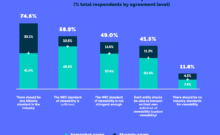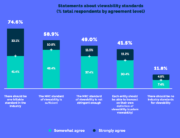Facebook’s ongoing collision with any remaining societal expectations of privacy has lit the world on fire with heated debate. As noted by The New York Times columnist Kevin Roose in his recent column, “Facebook is complicated. That shouldn’t stop lawmakers.,” without a clear understanding of Facebook’s business model or the technical framework underpinning it, Congress demands that Facebook address privacy issues. We can see how effective this is: Facebook has been apologizing for a decade, while the cries get louder for the fox to do a better job of watching the henhouse.
We face similar issues in the advertising ecosystem and have arguably taken a similar approach. While it’s very easy to blame Facebook in this situation, technologists generally write software to solve specific problems. Any software product manager can tell you that software requirements need to be more detailed than “privacy.” Facebook has, on the one hand, its core task of maximizing value for shareholders, but on the other hand, has the task of meeting somewhat nebulous expectations of privacy. Is it really that surprising that the result is the gradual rollout of features that are then judged to be less-than-adequate by consumer protection advocates?
Brands demand transparency and safety but are frequently willing to leave the definition of how to meet these requirements to companies that financially benefit from their absence. While some brands are beginning to develop enough fluency in ad tech to be able to ask more pointed technical questions than the average congressman, it’s definitely an uphill battle to acquire and maintain the necessary proficiency to operate in a constantly shifting ecosystem.
Brands demand transparency and safety but are frequently willing to leave the definition of how to meet these requirements to companies that financially benefit from their absence.
Read More at The Original Article: www.adweek.com









